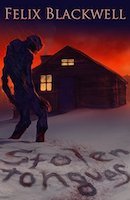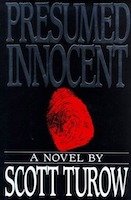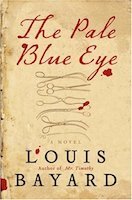Review: No One Gets Out Alive
/4 stars. What the in the batshit whackadoodle ever loving fuck did I just read?! Like, what room did I just walk out of, dazed and blinking and disturbed and relieved and kind of annoyed? I felt in over my head with this one, but boy was it a crazy ride. Very excited for it to haunt me when I least expect it. I'll say upfront: I do suggest checking out TWs! Also, I've watched the adaptation and while it's very different, it's very, very enjoyable! Highly recommend!
The story follows Stephanie, a young woman who flees her mentally ill stepmother, landing in the city with very little money and no job prospects in a dreadful economy. Essentially homeless, she takes a room at a dirty boarding house with a flaky landlord, determined to make it work. Her first night in the house, though, is far from peaceful. Creepy voices and strange noises emanate from the floors and walls, and the temperature fluctuates beyond explanation. Stephanie's circumstances grow more and more desperate as she has to decide: stay in a haunted house, or leave with nothing?
When I say that's just the beginning, you should believe it. That's like the first quarter of the book. Things take a huge turn halfway through, and get even crazier before finding an odd but acceptable resolution. I didn't mind the length so much - the journey made me really invested and interested in Stephanie's fate - but the writing itself could've used some editing. There is a lot - A LOT - of time spent in her head as her anxiety spirals. There are a lot - a LOT - of words dedicated to her questioning everything from every angle, examining every option, analyzing every possibility. I'm not saying this wouldn't happen (and I guess it does sort of escalate the tension as you yell at her to run), but I'm saying it got a little repetitive.
I'm also not entirely sure if the plot maybe was a little bit meandering? Especially in the second half. Nevill does such a terrific job writing moments - he truly has a dark gift for crafting dreadfully descriptive and horrifying episodes - but sometimes his story felt like a vehicle for the moments, not the other way around. Which isn't exactly a complaint (especially talking about horror - it's all about the scary moments), I'm just genuinely trying to sort through why I felt like the narrative lacked a bit. Or felt a little random at times.
Stephanie is a fierce heroine, though, and I never for one second dreamed of abandoning her. And Nevill also skillfully introduces us to one of the most creative, abhorrent villains of all time in Knacker. Knacker manages to offend every single one of the five senses. It's brilliant characterization - cartoonish but in a good way. I squirmed every time I encountered him on a page, which was surely the goal.
I'm glad I committed to this. It's horror in the truest sense of the word and I think it'll be considered a classic soon if not already. I can’t wait to continue my journey with Adam Nevill!
No One Gets Out Alive on: Amazon | Bookshop.org | Goodreads










